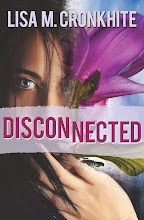Once
you get critiques on your work, you might come across people saying something
about the voice of your character. Does it sound like a YA novel? It’s hard to
tell sometimes when you’re writing. If you’re getting a lot of feedback saying
it doesn’t sound YA enough, hopefully some of these tips will help you.
I
think the number one thing you can do to help get that YA voice you’re looking
for is to read other YA novels. Don’t be a douchebag and write YA but never read
it. It doesn’t make any sense why you’d want to. When reading YA, try to get a
feel for the character and what they are saying and how they are saying it. You
can use common words teenagers say like, like, just, whatever, or something,
etc. But try not to overuse these words because it will sound like you’re
trying too hard. Teens will detect a fake. Having that authentic teen voice is
most important when writing YA. How do you write authentic YA? It comes from
your gut. If flows naturally. It isn’t forced. If you’re forcing it, then you
have a problem. Try to put yourself in the shoes of a teen. Would they say
that? Would they feel that way? To me there’s always some kind of vulnerability
in the character. They don’t quite fit in. Or they are testing their
boundaries. This is a time when they are finding themselves. They don’t know
everything. Who does? Teach your character to find themselves. Have your
character ask questions, doubt themselves, wonder why. Have your character
yearn to find out the answer, searching to solve the conflict in their lives.
In
YA, characters are between the ages of 12 to 18. So if you’re writing about a
17 year-old, put yourself in a 17 year-old shoes. Depending on the ages, they
might have a lot of responsibilities, or they might be dependent on their loved
ones. Don’t have an adult character help too much. Your character will have to
seek out the answers for themselves. That’s how they grow. This is another
important factor in YA. Don’t let everything happen to your character. Make
your character pro-active.
Another
thing you can do is hang out with teens. If you don’t know of any friends or
family, you can go to the mall or the park or wherever teens are hanging out.
Don’t be a creep about it and take notes as they’re talking. That would be
weird. But try to pick up on how they communicate with one another. Watch how
they act.
Writing
about your experience as a teen is always good. They always do say, write what
you know. Were you bullied in high school? Were you an outcast? Did you play
the piano? Some of these things you did when you are younger may in fact help
you write a better YA novel. Don’t be afraid to explore your past. This is
where some of the authenticity comes in. You don’t have to incorporate
everything of course, just some important factors you experienced firsthand
when you were a teen.
Nowadays
everyone wants to write YA—because that’s the hottest market. But because of
this, it is the most competitive too. Don’t write YA because you think you can
make money off of it. Your writing will show the difference. Write YA because
you love it.
If
you can think of some other tips to help with the YA voice, please feel free to
let me know. I’d love to hear from you.

2 comments:
I am not a YA novelist, but I did write a story recently from that POV. It does help that I have kids that age, but it also helped watching YA targeted television shows.
Yes, YA targeted TV shows does in fact help too. Thanks for your input, Brenda.
Post a Comment